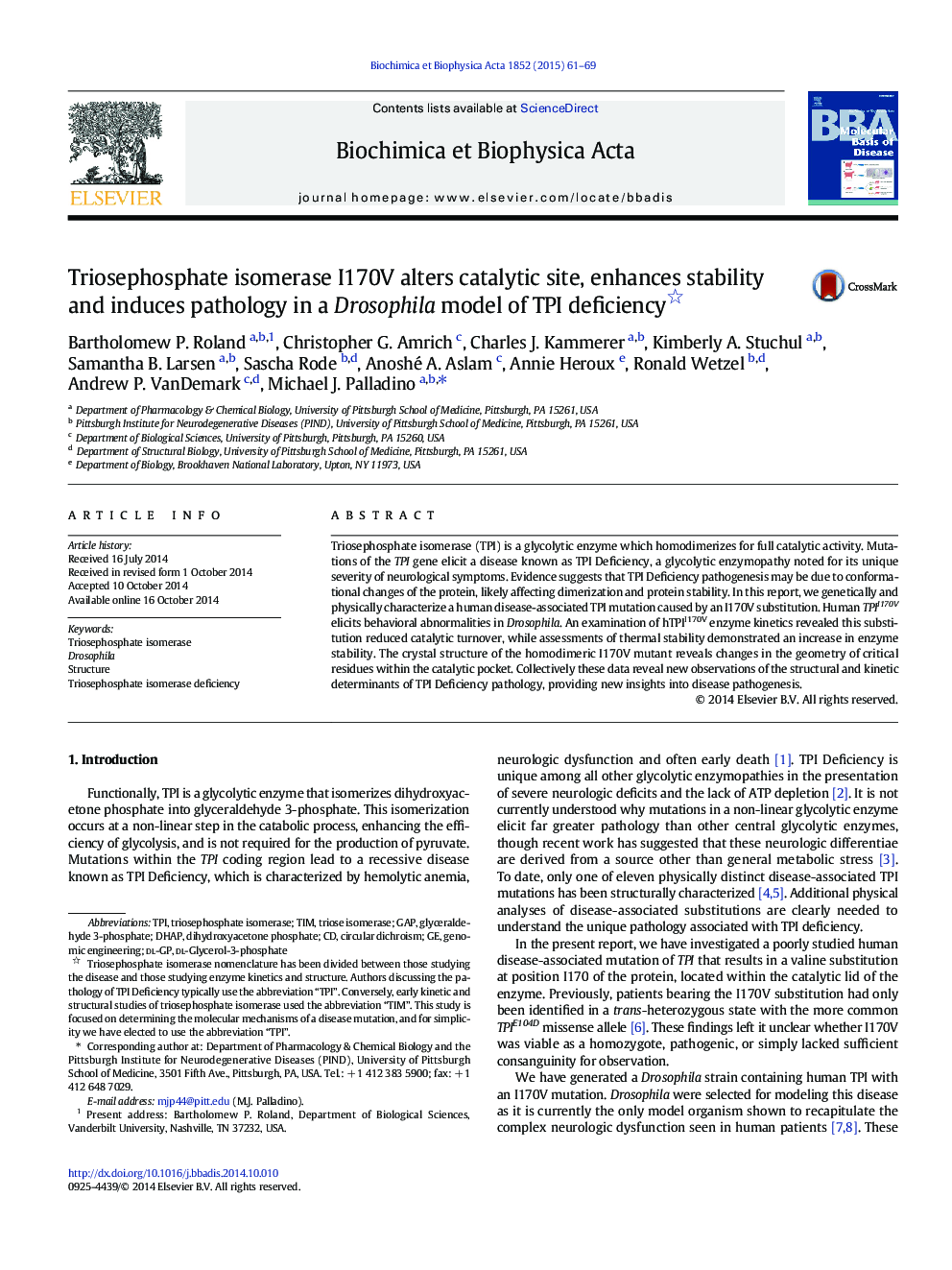| Article ID | Journal | Published Year | Pages | File Type |
|---|---|---|---|---|
| 1904674 | Biochimica et Biophysica Acta (BBA) - Molecular Basis of Disease | 2015 | 9 Pages |
•The human TPII170V missense allele is pathogenic.•Substituting I170V alters catalytic site geometry.•hTPII170V reduces catalytic turnover and enhances stability.
Triosephosphate isomerase (TPI) is a glycolytic enzyme which homodimerizes for full catalytic activity. Mutations of the TPI gene elicit a disease known as TPI Deficiency, a glycolytic enzymopathy noted for its unique severity of neurological symptoms. Evidence suggests that TPI Deficiency pathogenesis may be due to conformational changes of the protein, likely affecting dimerization and protein stability. In this report, we genetically and physically characterize a human disease-associated TPI mutation caused by an I170V substitution. Human TPII170V elicits behavioral abnormalities in Drosophila. An examination of hTPII170V enzyme kinetics revealed this substitution reduced catalytic turnover, while assessments of thermal stability demonstrated an increase in enzyme stability. The crystal structure of the homodimeric I170V mutant reveals changes in the geometry of critical residues within the catalytic pocket. Collectively these data reveal new observations of the structural and kinetic determinants of TPI Deficiency pathology, providing new insights into disease pathogenesis.
